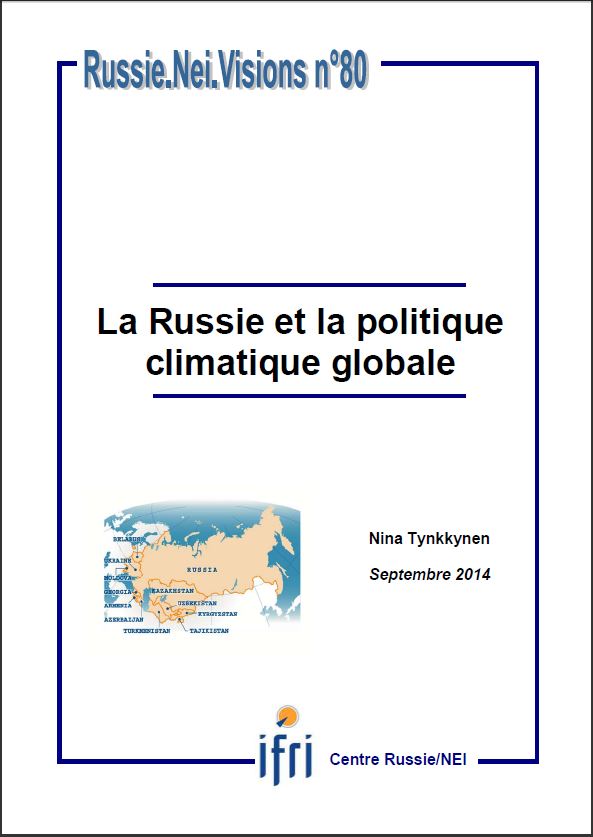Russia and Global Climate Politics

Russia, as the fourth largest greenhouse-gas emitter in the world, and a major supplier of fossil fuels causing these emissions, played a decisive role in the enforcement of the Kyoto Protocol, the main instrument of global climate policy so far.
Domestically, serious political measures to combat climate change have yet to be taken. Thus, Russia’s performance in global climate politics indicates that goals other than genuinely environmental ones, such as political or economic benefits, are the main motivation of Russia’s participation. Also, Russia’s national pride and its status as a great power are at stake here. This paper scrutinizes Russia’s stance in global climate politics, offering an overview of Russia’s engagement in international climate politics and its domestic climate policy. In the second part of the paper, Russia’s engagement in global environmental politics is discussed in the context of Russia’s world status and the great-power concept. Accordingly, the paper aims to shed light on how and why Russia behaves in global climate politics in the way it does. This may be of interest to actors in international environmental politics in general, and relevant to future climate negotiations in particular.
Download the full analysis
This page contains only a summary of our work. If you would like to have access to all the information from our research on the subject, you can download the full version in PDF format.
Russia and Global Climate Politics
Related centers and programs
Discover our other research centers and programsFind out more
Discover all our analysesRussia's Asia Strategy: Bolstering the Eagle's Eastern Wing
Among Russia’s strategic priorities, Asia traditionally played a secondary role compared to the West. In the mid-1990s, then Foreign Minister Yevgeny Primakov initiated a rapprochement with China and India. Then, in 2014, deteriorating relations between Russia and the West prompted Moscow to begin its “great pivot to the East”.
Kazakhstan After the Double Shock of 2022: Political, Economic and Military Consequences
The year 2022 represented a dual shock for Kazakhstan. In January, the country faced its most severe political crisis since independence, followed in February by Russia’s full-scale invasion of Ukraine, which cast uncertainty over the borders of post-Soviet states. These consecutive crises profoundly shaped Kazakhstan’s domestic and foreign policy.

How the Russian Army Changed its Concept of War, 1993-2022
The traditional and high-intensity war that has occurred in Ukraine since Russia decided to invade raises a key issue: did post-soviet Russian strategic thought really prepare Russia for waging this war?
Russia's Nuclear Deterrence Put to the Test by the War in Ukraine
From the outset of its “special military operation” (SVO) against Ukraine on February 24, 2022, Russia, which possesses one of the world’s largest nuclear arsenals, has adopted aggressive deterrence measures and a resolutely menacing rhetorical stance.









